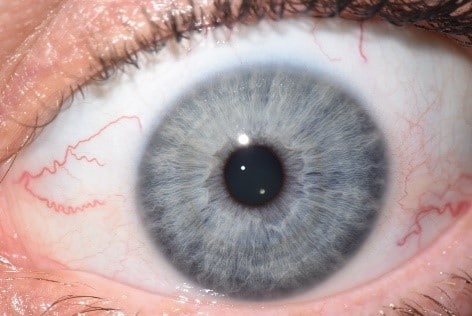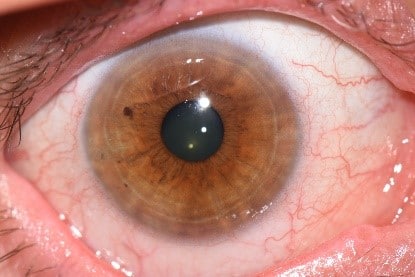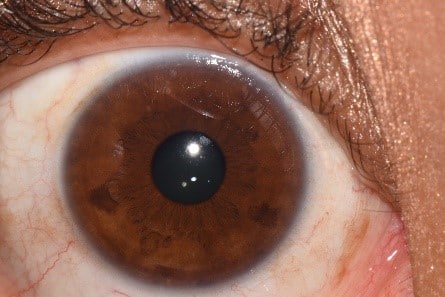Iridology Eye Types

[molongui_author_meta key=company]
[molongui_autor_meta key=phone]
[molongui_author_meta key=web]
Iridology Eye Types

[molongui_author_meta key=company]
[molongui_autor_meta key=phone]
[molongui_author_meta key=web]
Conditions Revealed by an Iridology Assessment
Just knowing the meaning of your eye color can provide you with a lot of information.
Lymphatic Eyes
Lympathic eyes (blue eyes) could have an inherent overactive lymph system, problems with tonsils, adenoids, upper respiratory, lungs, sinuses to name a few.


Biliary Eyes
Biliary eyes (mixed eyes of brown and blue) Could have issues with the liver and gallbladder, weakness in pancreas function, gastrointestinal disturbances and digestive issues to name a few.
Hematogenic Eyes
Hematogenic eyes (dark brown eyes) May have an imbalance of blood composition, thick or thin blood, inability to store essential minerals, having a tendency for anemia and circulatory insufficiency. Just knowing this information allows you to make better choices of what you put in your body.

Knowing your body and how you are feeling is a big factor.
- How well do YOU gauge how you are feeling?
- Are you feeling fatigued, do you have sinus drainage after having dairy products, eating wheat or eating sugar?
- After having a heavy meal, do you want to go to sleep?
- Does your body have an issue with digesting food where the food just wants to sit there and not move?
More Solutions Provided Through an Iridology Assessment
Blue Eyes
For instance, if you have blue eyes, the lymph system could be congested and some easy solutions could be doing vigorous exercises to move the lymph, jumping on a mini-trampoline, and deep breathing. Swinging your arms when walking. These can be modified if you have issues with balance. Dry skin brushing before a shower or bath is helpful in moving the lymph.
Dark Brown Eyes
If you have dark brown eyes, there is usually an imbalance of blood composition, tendency for anemia and circulatory insufficiency along with the liver, gallbladder and spleen. You can build the blood with eating greens, beets, black berries, black cherries to name a few. Eat foods high in fiber will also help. Avoid eating processed, fried and heated oils and junk food. Eat foods high in minerals, and drink vegetable juices and nut-seed milk.
Mixed Eyes (Blue and Brown)
If you have mixed eye (blue and brown), there usually is an imbalance with the liver and digestion issues. You would want to avoid fried foods and heated oils. You may want to concentrate on eating lots of bitter greens, kale, beet tops, cilantro, arugula and dandelion greens. Drink raw juices like wheat grass, parsley, spinach and beet. Black cherry juice will help elevate the iron.
Benefits of an Iridology Assessment
- You will be educated on potential imbalances
- You could have peace of mind
- Could eliminate some potential health issues
- It is easy and non-invasive
- It is quick and inexpensive
Send a Message
Send a message now to this Provider by completing the form to the right.
Questions about services, rates, location.
**Do not include private health information.** You may share private health information when you speak personally with your Provider.
Iridology Eye Types

[molongui_author_meta key=company]
[molongui_autor_meta key=phone]
[molongui_author_meta key=web]
Conditions Revealed by an Iridology Assessment
Just knowing the meaning of your eye color can provide you with a lot of information.
Lymphatic Eyes
Lympathic eyes (blue eyes) could have an inherent overactive lymph system, problems with tonsils, adenoids, upper respiratory, lungs, sinuses to name a few.


Biliary Eyes
Biliary eyes (mixed eyes of brown and blue) Could have issues with the liver and gallbladder, weakness in pancreas function, gastrointestinal disturbances and digestive issues to name a few.
Hematogenic Eyes
Hematogenic eyes (dark brown eyes) May have an imbalance of blood composition, thick or thin blood, inability to store essential minerals, having a tendency for anemia and circulatory insufficiency. Just knowing this information allows you to make better choices of what you put in your body.

Knowing your body and how you are feeling is a big factor.
- How well do YOU gauge how you are feeling?
- Are you feeling fatigued, do you have sinus drainage after having dairy products, eating wheat or eating sugar?
- After having a heavy meal, do you want to go to sleep?
- Does your body have an issue with digesting food where the food just wants to sit there and not move?
More Solutions Provided Through an Iridology Assessment
Blue Eyes
For instance, if you have blue eyes, the lymph system could be congested and some easy solutions could be doing vigorous exercises to move the lymph, jumping on a mini-trampoline, and deep breathing. Swinging your arms when walking. These can be modified if you have issues with balance. Dry skin brushing before a shower or bath is helpful in moving the lymph.
Dark Brown Eyes
If you have dark brown eyes, there is usually an imbalance of blood composition, tendency for anemia and circulatory insufficiency along with the liver, gallbladder and spleen. You can build the blood with eating greens, beets, black berries, black cherries to name a few. Eat foods high in fiber will also help. Avoid eating processed, fried and heated oils and junk food. Eat foods high in minerals, and drink vegetable juices and nut-seed milk.
Mixed Eyes (Blue and Brown)
If you have mixed eye (blue and brown), there usually is an imbalance with the liver and digestion issues. You would want to avoid fried foods and heated oils. You may want to concentrate on eating lots of bitter greens, kale, beet tops, cilantro, arugula and dandelion greens. Drink raw juices like wheat grass, parsley, spinach and beet. Black cherry juice will help elevate the iron.
Benefits of an Iridology Assessment
- You will be educated on potential imbalances
- You could have peace of mind
- Could eliminate some potential health issues
- It is easy and non-invasive
- It is quick and inexpensive
Send a Message
Send a message now to this Provider by completing the form to the right.
Questions about services, rates, location.
**Do not include private health information.** You may share private health information when you speak personally with your Provider.
Conditions Revealed by an Iridology Assessment
Just knowing the meaning of your eye color can provide you with a lot of information.
Lymphatic Eyes
Lympathic eyes (blue eyes) could have an inherent overactive lymph system, problems with tonsils, adenoids, upper respiratory, lungs, sinuses to name a few.


Biliary Eyes
Biliary eyes (mixed eyes of brown and blue) Could have issues with the liver and gallbladder, weakness in pancreas function, gastrointestinal disturbances and digestive issues to name a few.
Hematogenic Eyes
Hematogenic eyes (dark brown eyes) May have an imbalance of blood composition, thick or thin blood, inability to store essential minerals, having a tendency for anemia and circulatory insufficiency. Just knowing this information allows you to make better choices of what you put in your body.

Knowing your body and how you are feeling is a big factor.
- How well do YOU gauge how you are feeling?
- Are you feeling fatigued, do you have sinus drainage after having dairy products, eating wheat or eating sugar?
- After having a heavy meal, do you want to go to sleep?
- Does your body have an issue with digesting food where the food just wants to sit there and not move?
More Solutions Provided Through an Iridology Assessment
Blue Eyes
For instance, if you have blue eyes, the lymph system could be congested and some easy solutions could be doing vigorous exercises to move the lymph, jumping on a mini-trampoline, and deep breathing. Swinging your arms when walking. These can be modified if you have issues with balance. Dry skin brushing before a shower or bath is helpful in moving the lymph.
Dark Brown Eyes
If you have dark brown eyes, there is usually an imbalance of blood composition, tendency for anemia and circulatory insufficiency along with the liver, gallbladder and spleen. You can build the blood with eating greens, beets, black berries, black cherries to name a few. Eat foods high in fiber will also help. Avoid eating processed, fried and heated oils and junk food. Eat foods high in minerals, and drink vegetable juices and nut-seed milk.
Mixed Eyes (Blue and Brown)
If you have mixed eye (blue and brown), there usually is an imbalance with the liver and digestion issues. You would want to avoid fried foods and heated oils. You may want to concentrate on eating lots of bitter greens, kale, beet tops, cilantro, arugula and dandelion greens. Drink raw juices like wheat grass, parsley, spinach and beet. Black cherry juice will help elevate the iron.
Benefits of an Iridology Assessment
- You will be educated on potential imbalances
- You could have peace of mind
- Could eliminate some potential health issues
- It is easy and non-invasive
- It is quick and inexpensive
Send a Message
Send a message now to this Provider by completing the form to the right.
Questions about services, rates, location.
**Do not include private health information.** You may share private health information when you speak personally with your Provider.

